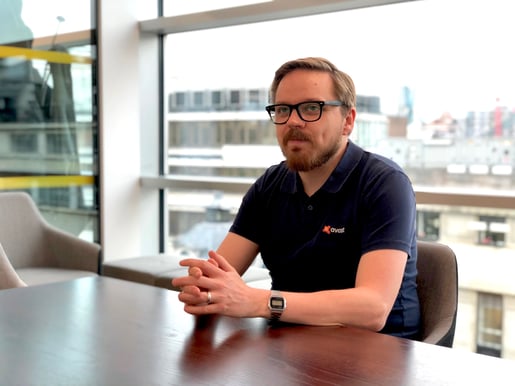Hackers converge on historic university to tear into challenges from top tech companies, including Avast
Hack Cambridge, the University of Cambridge’s annual hackathon, will soon bring together 300 hackers from universities all over the world. For 24 hours on Jan. 18-19, they will build, break and innovate to produce projects that push the boundaries of tech. Tom Kermode, a senior software engineer at Avast leads the company’s project adding a specific new feature to the Avast Secure Browser. The Avast Blog spoke with him about the event.
 Tom Kermode, a senior software engineer at Avast.
Tom Kermode, a senior software engineer at Avast.
Avast Blog: Hack Cambridge is coming up Jan. 18-19 with Avast as a sponsor. How would you explain the event to someone who has never heard of it?
Tom Kermode: Hack Cambridge brings together 300 bright and enthusiastic students and asks them to attempt challenges set by some of the world's leading tech companies. The participants can work alone or in small teams and the first thing they need to do is pick the challenge they find most appealing. They get 24 hours straight to hack away and come up with the best solution they can. Success requires a real blend of creativity, focus and efficiency, but the prizes are great and everyone learns a lot along the way.
Avast Blog: What kinds of things are hacked and what results ultimately come out of that initial work?
Tom Kermode: The sponsors can set any challenge they like, often focusing on their own products – perhaps adding functionality or improving what they already do – or sometimes setting a really open-ended challenge just to see what the participants might come up with. Companies can use this to discover great talents and, for example, Avast uses the event as a way to meet promising young hackers who we might invite to come and work for us as paid interns. This year, our challenge is about adding a specific new feature to the Avast Secure Browser and the winning team's work could be enjoyed by millions of people. I don't know if I'm allowed to be any more specific than that though. I wouldn't want to give too many hints before the event begins!
Hacking “stems from a time in the ’60s when hackers were just people who had the urge to take things apart, learn how they worked, and expand or build on them.”
Avast Blog: People sometimes associate the word “hacking” with illicit or even criminal work, and the opposite of cybersecurity. How is this hacking different and constructive?
Tom Kermode: Hacking is a term that gets used in varying contexts, most famously pushed by Hollywood and the general media to refer to subverting software or systems for criminal gain. But it stems from a time in the ’60s when hackers were just people who had the urge to take things apart, learn how they worked, and expand or build on them. This was when computers were really a new thing and just became the most intriguing and exciting avenue to explore. So when we participate in the hackathon, it's in the spirit of this meaning of the word. It's about taking an existing system, product or even idea, breaking it apart, remoulding it and just basically running with it to see where you can get. The challenges we set are really there to give participants a starting point, inspire them, and get them going. Of course, we have a team of mentors on hand to help if things get too difficult, to answer questions and just generally do what we can to help the students keep their creative juices flowing.
Avast Blog: What is the atmosphere like when 300 programmers from all over the world get together for 24 hours?
Tom Kermode: Fun! There's a real energy when everyone dives in and gets started with a great buzz in the main hall. There's lots of conversation, people bounce ideas off each other, we all chat in the event's Slack channels, people help each other – it's great. Then there are workshops where the mood gets more studious, as students learn deeper insights about the challenges. And then it runs right through the night, so it gets quieter, people get serious as they develop their solutions, people wander around checking out what each other are doing. It gets silly in the wee small hours – that's when our team started adding strawberry and chocolate sauce to pizzas last time – and of course, people nod off wherever they can find a quiet spot. But the main thing is, the hackathon is fun, friendly and exciting. Just seeing how much energy and brain power people put into it is a real inspiration.
Avast Blog: Why does the world need hackathons like this?
Tom Kermode: Developers working in a business environment are usually constrained by the procedures and expectations of their workplace, old decisions and processes that we follow because that's what we've always done. The hackathon offers a complete contrast by encouraging participants to work without limits, run free with their ideas, and take chances. This is cool because it means they can explore solutions we might never have discovered, but it also reminds us that we set many of our own limitations. The hackathon gives us a chance to encourage people at the beginning of their careers to bring along more open attitudes, which is vital for progress.
Learn more about Avast Secure Browser and Hack Cambridge.